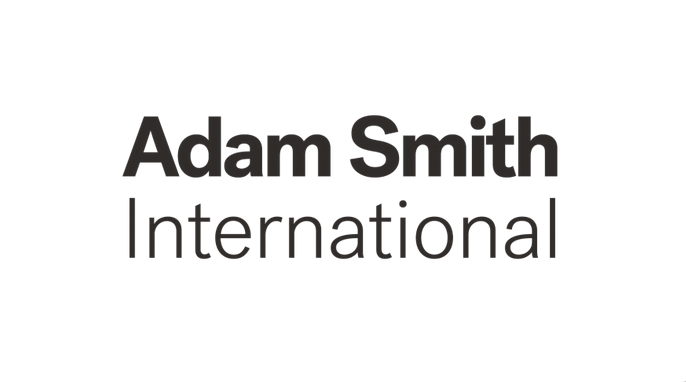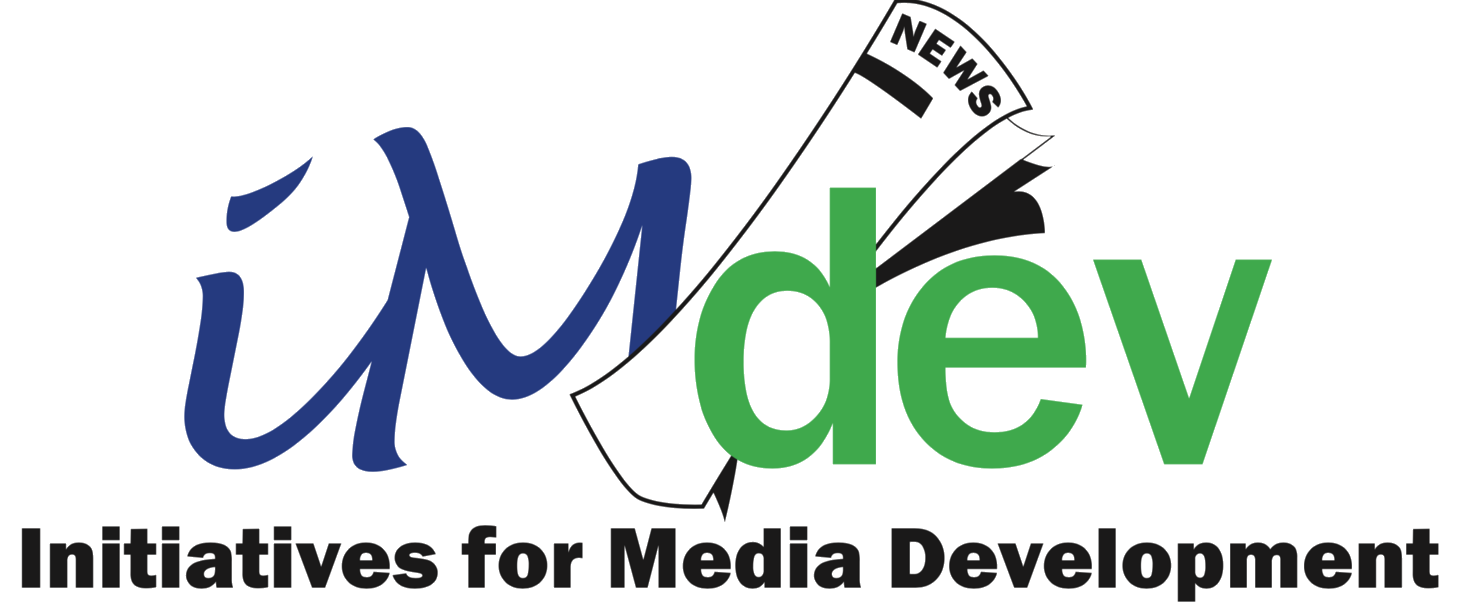

In a concerted effort to combat malaria and promote public health, IMdev has collaborated with Sierra Leone's Ministry of Health and Sanitation, bolstered by funding from UNICEF, to spearhead a dynamic Health Education program. With a primary focus on raising awareness about bed net distribution, IMdev has employed a multifaceted media approach, leveraging jingles, short videos, radio and TV appearances, and social media platforms to amplify outreach and engagement. Through these concerted efforts, IMdev aims to empower communities with crucial knowledge about malaria prevention, ultimately contributing to improved health outcomes across Sierra Leone.
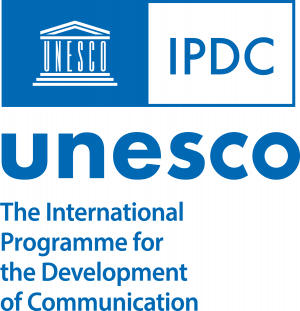
Malaria remains a critical public health issue in Sierra Leone, significantly affecting children under five and pregnant women. To combat this, the Ministry of Health, in collaboration with partners and funded by UNICEF Sierra Leone, launched the 2023-2024 Nationwide Insecticide Treated Mosquito Nets (ITNs) Campaign, distributing over 5.4 million ITNs to households nationwide. Central to this campaign was a comprehensive media engagement strategy to ensure community participation and behaviour change. The Initiatives for Media Development was tasked with leading the media campaign.

Media Engagement Strategies
Several media strategies were employed by the Initiatives for Media Development to inform 95% of households about the ITN campaign and its proper usage:
1. Jingles in Krio and Local Languages: Four jingles were produced in Krio, covering different campaign stages—registration, distribution, and post-distribution. To ensure accessibility, these jingles were translated into multiple local languages and refined through pre-testing across all districts.
2. TV Discussion Programs: Television programs on AYV TV and SLBC TV provided detailed discussions about the ITN distribution process, reaching a broad audience.
3. Broadcast of Video Skits: Two short videos were aired extensively on AYV TV and SLBC TV from January 29 to February 14, 2024, maximizing outreach with twice-daily broadcasts.
4. Malaria Theme Song: A theme song promoting ITN usage, produced with the Sierra Leone Armed Forces Band, was disseminated through various channels.
5. Radio Discussion Programs: Radio programs targeted diverse audiences on stations like Voice of Islam, Tumac Radio, Citizen Radio, SLBC, and SKYY Radio. These programs were tailored to specific demographic groups and included community insights to address local concerns.

In March 2024, the Ministry of Health (MoH), in collaboration with the National Public Health Agency (NPHA), identified a variant type 2 poliovirus in Mabela Sawmill Bridge, Western Area Urban. The Ministry of Health in Sierra Leone announced a nationwide mass vaccination campaign to swiftly interrupt the transmission of this circulating vaccine-derived poliovirus type 2 (cVPV2) and boost population immunity. This initiative will target over 1.5 million children under five using the polio vaccine.
Vaccination Campaign Schedule
The Ministry of Health will conduct the nationwide vaccination campaign in two rounds:
First Round: 10th May 2024
Second Round: 10th June 2024
Media Engagement and Public Communication
To ensure adequate public communication and maximize campaign reach, the Initiatives for Media Development (IMdev) was appointed to lead the media campaign. This comprehensive communication strategy includes producing and airing informative jingles, campaign videos, and interactive radio and TV discussion programs.
Media Strategies
Jingle Production and Airing: Engaging and informative jingles will be broadcast in various languages to reach diverse communities across Sierra Leone. These jingles will highlight the importance of the polio vaccination campaign and encourage parents to ensure their children receive the vaccine.
Campaign Videos: Visually compelling campaign videos will be created to educate the public further about the vaccination drive. These videos will be disseminated through multiple channels, including television and social media platforms.
Radio and TV Discussion Programs: Interactive discussion programs will be organized on prominent radio and TV stations. These programs will provide a platform for healthcare experts to discuss the vaccination campaign, address public concerns, and answer questions from the audience.
Conclusion
The nationwide polio vaccination campaign is critical in combating the spread of variant poliovirus in Sierra Leone. Through a robust media engagement strategy led by IMdev, the Ministry of Health aims to educate the public, increase vaccination coverage, and protect children's health nationwide. Parents and caregivers are urged to participate in the campaign and ensure their children are vaccinated on the scheduled dates.
For more information on the media campaign and vaccination schedule, please listen to local radio and TV stations and follow updates on social media.


In response to growing concerns about the potential impact of fake news on Sierra Leone's democracy, Initiatives for Media Development (IMdev) collaborated with Media Matters for Women (MMW) with funds from the US Embassy in Sierra Leone and the Fulbright Program to launch the Improving Societal Resilience on Fact-Checking project. This initiative aimed to empower both online and offline populations with media information literacy (MIL) skills to combat the spread of misinformation, particularly in the context of the 2023 elections. At the core of this project was the enhancement of Salone Fact Checker (SFC), Sierra Leone's premier fact-checking platform, which received critical support from a 33-day Fulbright specialist project led by Dr. Michael Epstein. Through strategic engagements with government officials, university stakeholders, journalists, and grassroots communities, Dr. Epstein developed a blueprint to bolster SFC's capacity in countering fake news, fostering fact-based reporting, and promoting media literacy across diverse segments of the population.
The project's efforts culminated in the formation of a dedicated "Truth Team," comprising journalists from both MMW and IMdev, tasked with producing evidence-based report cards on trending news stories. Over the course of six months, the Truth Team meticulously investigated and published 12 report cards on the SFC Facebook page, covering a spectrum of political, social, and economic issues. These reports, characterized by their rigorous fact-checking methodology and reliance on credible sources, were disseminated via podcasts to rural communities, reaching over 50,000 listeners across 267 communities weekly. Additionally, IMdev's extensive network of 40 community radio stations and WhatsApp platforms facilitated the broadcast of fact-checked stories to remote areas, ensuring broad access to reliable information.
The project's impact extended beyond traditional media channels, as MIL training sessions conducted by Dr. Epstein empowered 25 journalists and mass communication students to build capacity in fact-checking skills. Emphasizing inclusivity, these trainings prioritized underserved populations, including rural women, illiterate individuals, and other vulnerable groups, to foster a more informed and discerning public. By strengthening SFC's infrastructure, enhancing journalistic skills, and amplifying fact-checked content through various communication channels, IMdev and its partners aim to mitigate the negative effects of fake news on Sierra Leone's democratic processes, promoting stability, trust, and peace among its citizens in the lead-up to the 2023 elections.
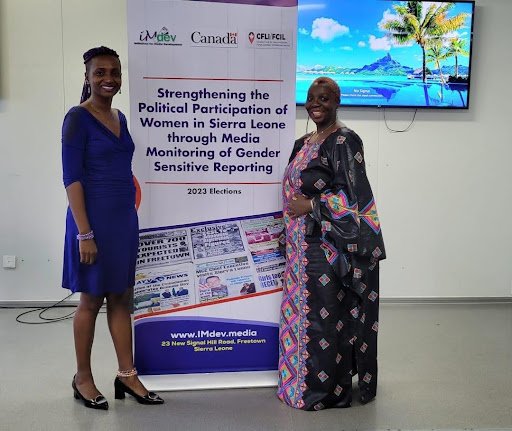

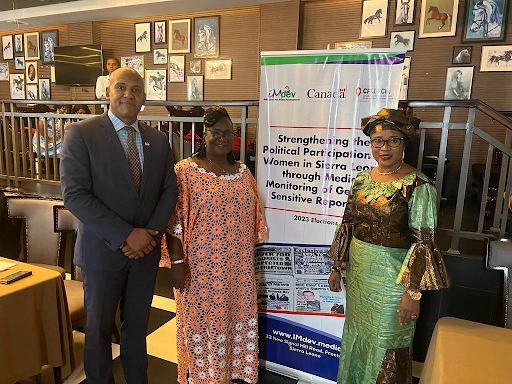
IMdev's initiative to bolster COVID-19 vaccination rates in Sierra Leone reflects a strategic and comprehensive approach. Through targeted media campaigns and community engagement efforts, the organization has tackled vaccine hesitancy and misinformation head-on. Leveraging radio discussions and youth mobilization, IMdev has not only aimed to increase vaccination uptake but also promote the broader benefits of routine immunization, emphasizing societal well-being and a return to normalcy. With a focus on amplifying vaccination rates among both the youth and elderly populations, IMdev's holistic strategy underscores the importance of integrated risk communication and community engagement in combating the ongoing pandemic.

IMdev, in collaboration with Sierra Leone's Ministry of Health and Sanitation Health Education program, supported by funding from UNICEF, has made significant strides in increasing awareness about the importance of breastfeeding. Utilizing various media channels including radio jingles aired on AYV Radio 101.7FM, Star Radio 103.5FM, and SLBC 99.9FM, alongside engaging social media platforms, IMdev reached an estimated 600,000 individuals, comprising 350,000 males and 250,000 females, with impactful messaging on breastfeeding benefits.

IMdev, a pioneering media support agency, joins forces with Latanzio PLC, to bolster the European Union's presence and impact in Sierra Leone.
At the core of their collaboration lies a shared commitment to enhancing public awareness of the EU's pivotal role in Sierra Leone's development journey. Through strategic planning and innovative approaches, IMdev and Latanzio PLC leverage the power of media to illuminate the EU's initiatives, fostering a deeper understanding and appreciation within local communities.
The “Sierra Leone 2023 Elections: Enhancing the Capacity of Female Journalists in Community Radio to Address Policy Issues on SGBV”, funded by UNESCO IPDC in 2022, aimed to enhance the skills and capacities of 25 female journalists in Sierra Leone, yielding significant outcomes. The project meticulously designed a curriculum aligned with UNESCO's journalism education standards, focusing on crucial indicators such as Media Development, Gender Sensitivity, Internet Universality, and Journalist Safety. Through targeted training sessions on gender-sensitive reporting, investigative journalism, electoral laws, and gender equality laws, tangible improvements in journalistic competencies were achieved. Additionally, online training facilitated by international experts equipped the journalists with advanced professional skills, including access to information laws and media information literacy. Mentorship resulted in 24 journalists successfully producing "Uman Political Barray" broadcasts, showcasing their developed skills and contributing to political discourse, reflecting increased abilities and impactful contributions.


However, through the project, I acquired new skills and techniques on effectively communicating the significance of radio interviews in their political careers.
I learned how to emphasize the importance of using the media as a powerful tool to reach a wider audience, particularly when addressing critical issues like SGBV, policies, and elections. The project provided me with a platform, including thirty-minute radio programs, to facilitate these vital discussions and empower women in politics.
Being part of this project not only enhanced my professional development but also allowed me to connect and network with fellow journalists and women involved in politics. This project also inspired me to amplify the voices of women in the political landscape during the shortlisting process for the Proportional Representation lists to achieve the aspirations of the Gender Equality and Women’s Empowerment Law.
Additionally, the opportunity to explore podcasting as a medium was both exciting and rewarding, with positive outcomes achieved. I am confident and optimistic about continuing to promote women's participation in politics and advocating for gender equality in Sierra Leone.
I extend my heartfelt appreciation to IPDC-UNESCO for their unwavering commitment to empowering journalists and addressing the pressing issues of SGBV. Their funding made this project possible, covering essential resources and support for its successful implementation.
I am also grateful to the Initiatives for Media Development for their guidance, and mentorship throughout the project.
Their dedication to advancing women in journalism and promoting gender equality is commendable.

Children and youth face a myriad of challenges, including hunger, homelessness, and various forms of violence, compounded by poverty, gender inequality, and limited access to education and healthcare. The country's ranking in the 2021 KidsRights Index reflects these challenges, highlighting the urgent need for concerted efforts to protect and promote children's rights in Sierra Leone.
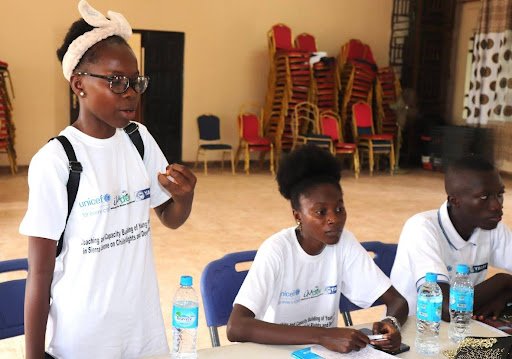
These adolescents have participated in training sessions focused on photography, writing skills, gender-sensitive reporting, and advocacy on critical issues such as vaccines access, learning, mental health, climate change, and safe water. Through hands-on activities and guidance on UNICEF's protection guidelines, including measures to combat sexual exploitation and abuse, IMdev and UNICEF are working to amplify the voices of these adolescents, ensuring their meaningful participation in shaping positive change within their communities.
IMdev was selected by SANDIN, a Kenyan consulting firm, to provide on-the-ground communications support and publicity for the arrival of the first shipment of 52,800 Johnson and Johnson vaccines in Sierra Leone. Our team of communication experts was well-equipped to provide comprehensive and effective support, ensuring that the public was well-informed about the arrival and distribution of these vaccines.
Interviews were conducted with high-level personalities including the Minister of Health and Sanitation, the Chairman of NaCOVERC and the focal person for CDC.
The events were simulcasted live across 30 IMdev community partner radio stations across the country and the Sierra Leone Broadcasting Corporation.
All official Government of Sierra Leone COVID-19 Facebook platforms: Ministry of Health and Sanitation, the Ministry of Information and Communications and the National COVID 19 page broadcasted live events.
Photos and press releases were shared via WhatsApp and Facebook. IMdev ensured visibility of the AVAT partners in all activities.





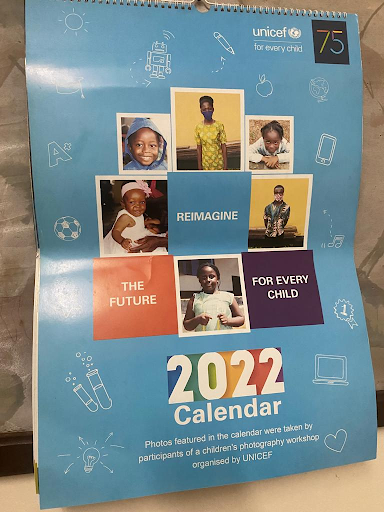
As UNICEF celebrated its 75th anniversary on December 11, 2021, amidst the backdrop of the ongoing COVID-19 pandemic, the occasion served as a poignant reminder of UNICEF's enduring commitment to children's welfare globally. The milestone anniversary provided an opportunity for UNICEF to engage stakeholders, including partners, member states, and young people, in reaffirming its dedication to delivering tangible results for every child. Through collaborative efforts with organizations like IMdev, UNICEF continues to advocate for children's rights, leveraging media tools and storytelling to raise awareness and drive positive change for the most vulnerable members of society.
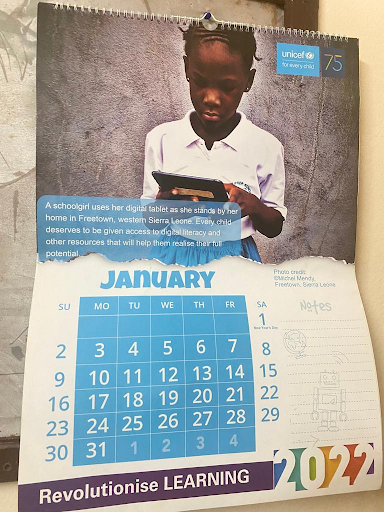
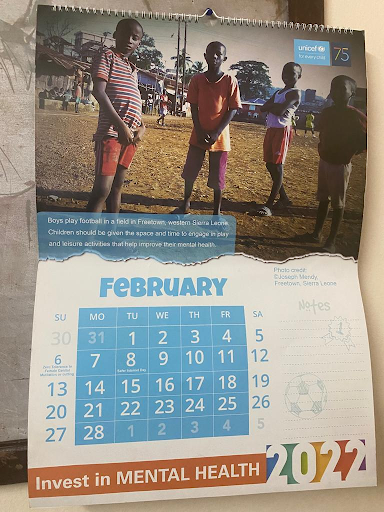
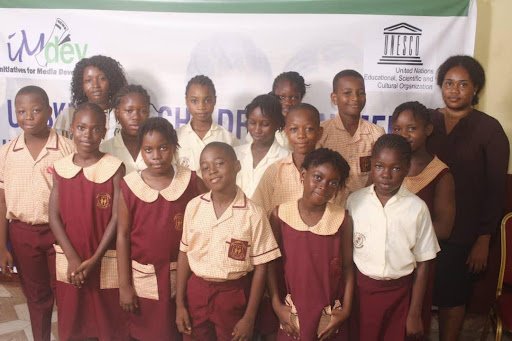
The project successfully upskilled the adolescents in MIL, emphasizing technical, cognitive, and emotional competencies essential for navigating social media responsibly. Following the engagements, two MIL school clubs were established, providing ongoing opportunities for knowledge development and skills enhancement. Pupils demonstrated a basic understanding of MIL and actively shared their knowledge with peers and families. The initiative sparked increased dialogue around MIL within the selected schools, with continued engagement facilitated through school clubs and virtual meetings. Notably, IMdev also organized a #TakeOver Social Media event, empowering adolescents to showcase their MIL skills and promoting continued discussions on combating fake news and disinformation. The project's success is evidenced by the active involvement of school clubs in hosting town hall discussions and additional training sessions, furthering the impact of MIL in promoting digital literacy and responsible social media use among adolescents in Sierra Leone.
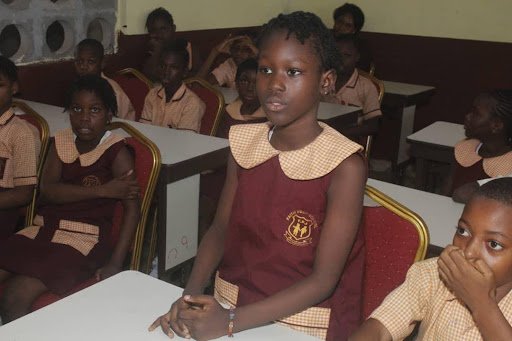
Through collaborative efforts, the project enabled participating community radio stations to play a vital role in shaping public discourse on migration. By prioritizing accurate information and humanizing stories related to migration, these stations have effectively challenged misconceptions and contributed to a more informed public dialogue. The use of evidence-based reporting and engagement with diverse stakeholders has enhanced the quality and depth of coverage on migration topics. As exemplified by the provided link, radio stations like AfriRadioSL have leveraged multimedia platforms to further amplify their impact, reaching broader audiences and facilitating constructive conversations on migration within vulnerable communities. See facebook page
In 2020, IMdev, with funding from the US Embassy in Sierra Leone, utilized its established fact-checking platform, Salone Fact Checker, to combat the proliferation of fake news, particularly amidst the COVID-19 pandemic. Recognizing the increasing prevalence of misinformation on social media platforms, the project aimed to provide a reliable source for fact-checking news and information circulating online.
The “Sierra Leone 2023 Elections: Enhancing the Capacity of Female Journalists in Community Radio to Address Policy Issues on SGBV”, funded by UNESCO IPDC in 2022, aimed to enhance the skills and capacities of 25 female journalists in Sierra Leone, yielding significant outcomes. The project meticulously designed a curriculum aligned with UNESCO's journalism education standards, focusing on crucial indicators such as Media Development, Gender Sensitivity, Internet Universality, and Journalist Safety. Through targeted training sessions on gender-sensitive reporting, investigative journalism, electoral laws, and gender equality laws, tangible improvements in journalistic competencies were achieved. Additionally, online training facilitated by international experts equipped the journalists with advanced professional skills, including access to information laws and media information literacy. Mentorship resulted in 24 journalists successfully producing "Uman Political Barray" broadcasts, showcasing their developed skills and contributing to political discourse, reflecting increased abilities and impactful contributions.
By actively monitoring rumors and misinformation related to COVID-19 and conducting continuous scans of social media, IMdev sought to strengthen the proactive use of social media in disseminating accurate news about the pandemic. Moreover, the project proactively responded to such rumors and misinformation by identifying and investigating the facts posted on social media platforms, ensuring that information shared aligns with ethical journalism standards. Utilizing an ethical lens, IMdev posted verified information on the same platforms, contributing to a more informed public discourse and combating the spread of fake news.



Amidst the global COVID-19 pandemic, Sierra Leone faced significant challenges in combating the spread of the virus due to widespread rumors, myths, and misconceptions within communities. Recognizing the urgent need for education and sensitization efforts, UNICEF partnered with Initiatives for Media Development (IMDev) to launch the "Leh we tok but corona" (Let's talk about corona) radio program across 40 radio stations nationwide. This initiative aimed to disseminate vital information and preventive measures against COVID-19, addressing misconceptions and promoting public health awareness.
Since its inception two months ago, the radio program has successfully produced and broadcasted eight out of ten targeted programs, covering a range of topics from basic preventive methods to more in-depth discussions on emerging issues related to the pandemic. Leveraging voices and insights from national and community stakeholders, including UNICEF Child Protection Specialists and representatives from the Ministry of Gender and Children's Affairs, the radio programs have addressed critical issues such as Gender-Based Violence (GBV) and violence against children, advocating for the immediate release of children from detention facilities amidst the COVID-19 crisis.
In addition to broadcasting, IMDev implemented a robust monitoring mechanism involving 30 listener groups across 30 communities to gather feedback on the effectiveness of the COVID-19 radio programs.. By combining media outreach with community engagement and feedback mechanisms, the "Leh we tok but corona" radio program demonstrates a proactive and collaborative approach to addressing public health challenges and promoting accountability in health governance amidst the ongoing pandemic.
Initiatives for Media Development (IMdev), supported by the International Programme for the Development of Communication (IPDC) under UNESCO, embarked on a transformative journey to empower women and promote gender-sensitive media in Sierra Leone. Through a six-month project launched in 2019, IMdev partnered with Women in the Media Sierra Leone (WIMSAL) and the Guild of Editors to advance the status of women's rights and enhance the representation of gender-related issues in media coverage. With a focus on local ownership and long-term sustainability, the project aimed to build greater awareness of women's rights, improve the status of female journalists, and institutionalize a culture of excellence in gender and human rights reporting within media houses and educational institutions.
The project's achievements reflect a significant step forward in advancing gender empowerment and promoting inclusive media practices in Sierra Leone. Journalists underwent intensive training sessions on gender-sensitive reporting, where they learned to integrate human rights and gender perspectives into their coverage of women's issues. These efforts led to a notable improvement in media coverage, with journalists demonstrating a deeper understanding of gender dynamics and a commitment to mainstreaming gender issues in their reporting. Additionally, newsroom mentorship initiatives provided invaluable support to journalists, further enhancing their capacity to produce nuanced and impactful stories on gender-related topics.
Furthermore, the project facilitated meaningful engagement among media professionals, editors, and stakeholders through forums and discussions focused on gender mainstreaming in the newsroom. Recommendations emerged from these engagements, emphasizing the importance of combating sexist representations in media content, promoting equal access and participation of women in the media industry, and advocating for gender-sensitive media and ICT policies. By fostering dialogue and collaboration, IMdev has played a pivotal role in catalyzing change within the media landscape, paving the way for a more inclusive and gender-responsive media environment in Sierra Leone.

 Aminata Fofanah
is a reporter at the Sierra Leone Broadcasting Corporation Radio and with over five (5) years working experience in journalism and very passionate about reporting on Gender related issues. She holds a Higher Teacher Certificate from Milton Margai College of Education and Technology.
Aminata Fofanah
is a reporter at the Sierra Leone Broadcasting Corporation Radio and with over five (5) years working experience in journalism and very passionate about reporting on Gender related issues. She holds a Higher Teacher Certificate from Milton Margai College of Education and Technology.
 Lucy Emmanette Alieu
is a journalist working for Cotton Tree news/ Radio mount Aureole FBC with over two years experience in journalism. She holds a BA Hons in Mass Communications specializing in public relations.
Lucy Emmanette Alieu
is a journalist working for Cotton Tree news/ Radio mount Aureole FBC with over two years experience in journalism. She holds a BA Hons in Mass Communications specializing in public relations.

By partnering with local stakeholders such as the National Youth Commission, the media, and the Guild of Editors, IMdev pursued key objectives, including closely monitoring social media platforms for news and information, investigating and fact-checking posts with an ethical lens, and fostering a culture of excellence in spreading credible information through social media platforms.
Over the course of 12 weeks, IMdev's SaloneFactCheck initiative provided Sierra Leoneans with accurate, balanced, and credible information, challenging the inaccuracies present in news and information circulating on social media. This project assembled a team of investigative journalists, editors, and social media experts to rigorously investigate stories emanating from social media platforms and raise awareness about ethical biases. The initiative also involved training key staff on investigative reporting skills, ensuring that participants were equipped with the necessary tools to verify stories through reliable and credible sources. Additionally, IMdev developed a fact-checking manual based on insights gleaned from the 12-week fact-checking period, further contributing to media literacy and the dissemination of accurate information in Sierra Leone.

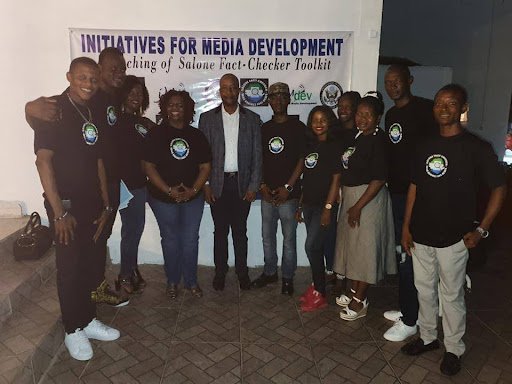
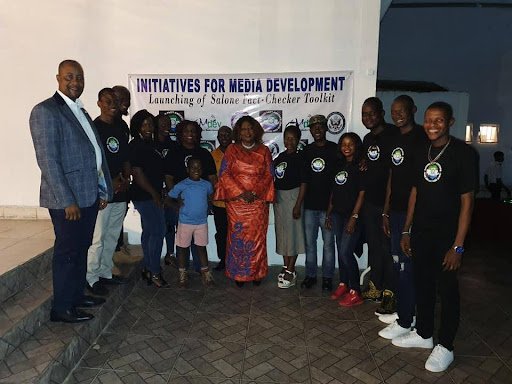
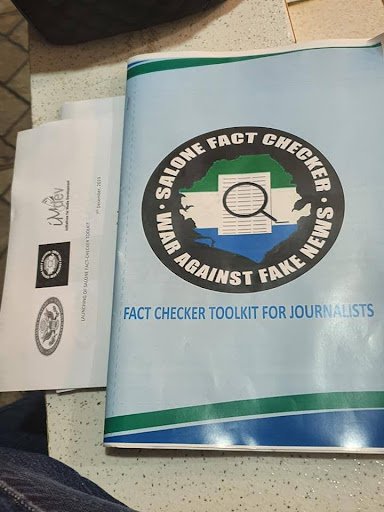
The project 'Sierra Leone Elections 2018: Who Made the News? A Media Gender Equality Score Card,' funded by United Nations Women in Sierra Leone and implemented by Initiatives for Media Development (IMdev), aimed to enhance gender equality and representation in the media, particularly concerning the elections. It focused on advocating for fair coverage, balance, accuracy, and non-discrimination in media reporting. With 40 monitors assessing 20 media outlets over eight weeks, the project aimed to hold editors and content producers accountable for their coverage.
The initiative also facilitated discussions among high-level media practitioners and gender stakeholders to address the lack of prominence given to women and gender issues in the media, especially in politics.
The methodology involved training monitors in coding processes at the UN Women's office in Freetown, with 40 monitors divided into groups to monitor newspapers, television stations, and radio stations across the country. The quantitative data collected focused on topics, themes, and issues, providing a detailed analysis of gender representation in the media. Qualitative analysis complemented the quantitative data, offering insights into the quality of coverage and weekly trends. Throughout the monitoring period, there was a noticeable imbalance in gender representation, with male sources dominating across media categories, although there were slight improvements over time.

The Strengthening Post-Ebola Health Governance programme strived to create greater monitoring, accountability and citizens engagement on Health Governance issues. Output 3 of the project focuses on “Increasing media capacity in Sierra Leone to monitor and oversee health care services” and capitalises on the complimentary role of the media in galvanizing citizens voices and giving them a platform to express their views and opinions on access to the Free Health Care drugs and services.
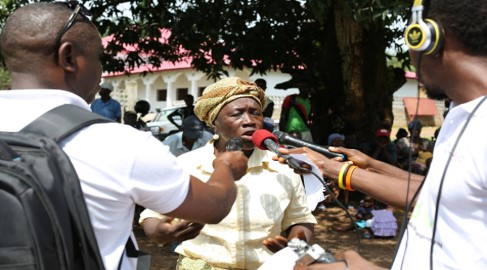
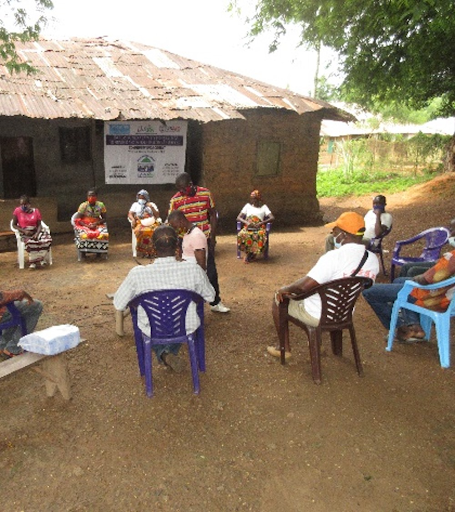
In 2016, IMdev collaborated with its community radio and media partners to enhance the ethical reporting skills of 130 journalists regarding children's issues, supported by funding from UNICEF Sierra Leone.
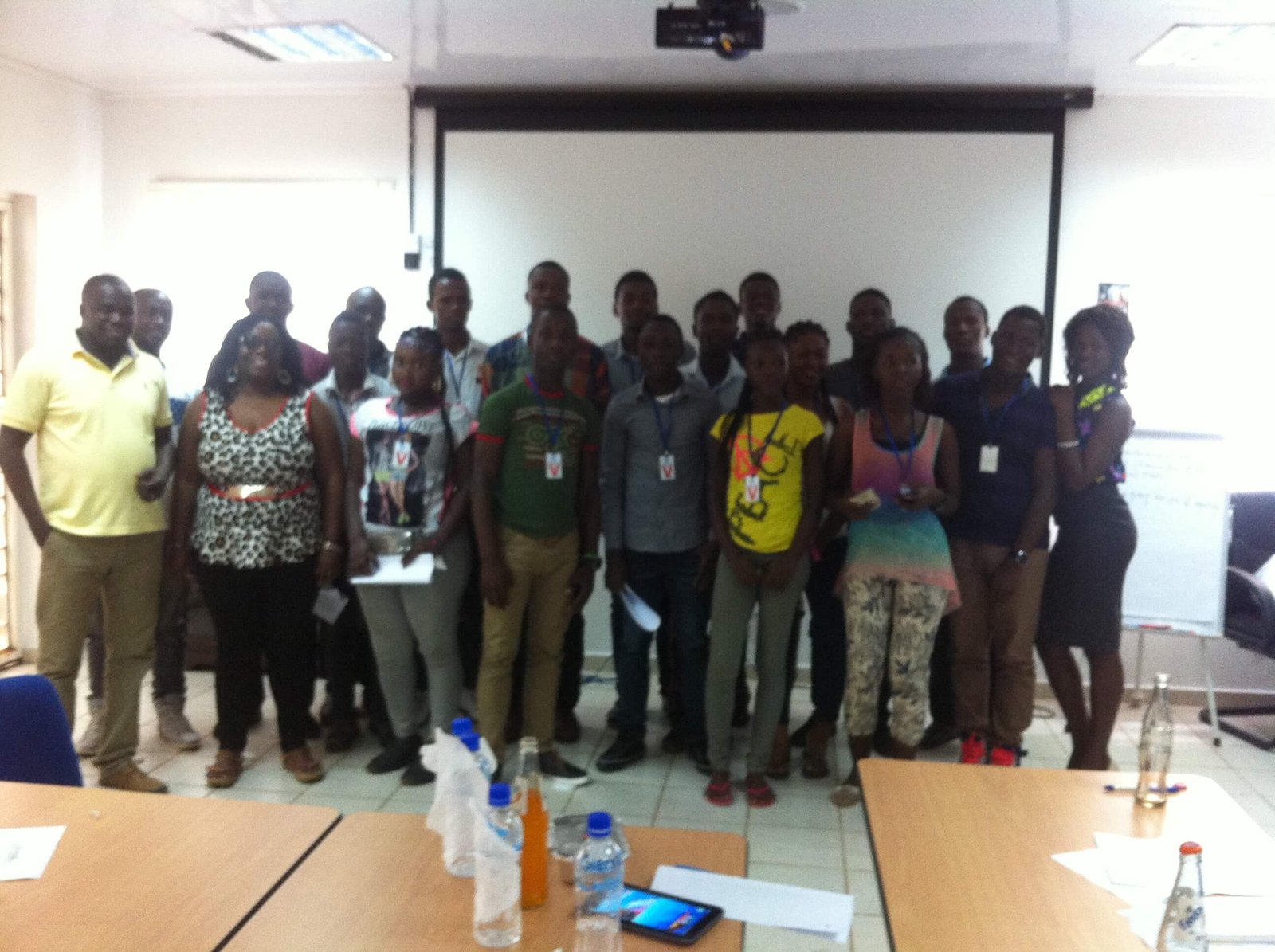
From 2014 to 2015, Initiatives for Media Development (IMdev), in collaboration with the National Youth Commission (NAYCOM) and the United Nations Development Programme (UNDP), undertook a transformative initiative aimed at empowering youth in Sierra Leone. Over a four-month period from September 2014 to January 2015, the project sought to amplify the voices and achievements of young Sierra Leoneans aged between 15 and 35. With a focus on showcasing youth-led initiatives and successes, the endeavor aimed to highlight the talents, innovative ideas, and entrepreneurial endeavors of young individuals, particularly those from marginalized backgrounds. This inclusive approach aimed to provide a platform for female youth who often lack opportunities to have their voices heard, fostering an environment conducive to self-employment and job creation among Sierra Leone's youth population.
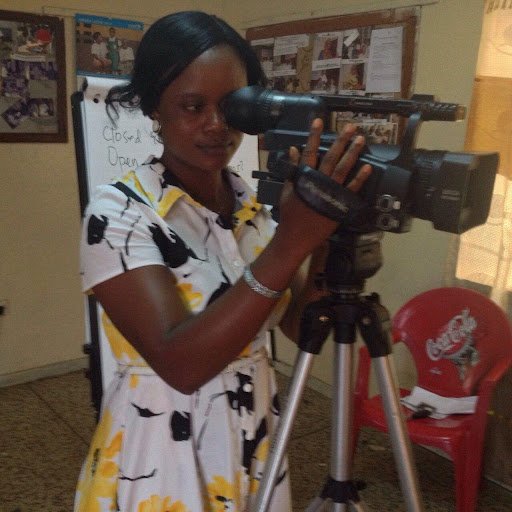

In 2014, the Initiatives for Media Development, supported by Adam Smith International, launched a training program targeting 100 journalists on 'Mainstreaming Water, Sanitation, and Hygiene (WASH) in the media.' Initially focused on reporters from the Northern, Southern, and Western regions, the program expanded with an additional grant from ASI to include journalists from the Eastern region. In response to an emergency situation in Sierra Leone, two workshops were held, each targeting 10 journalists, from January 28th to 31st, 2015. IMdev collaborated with existing WASH journalists, Women in the Media Sierra Leone (WIMSAL), and media owners for participant selection, with all sessions hosted at the Kenema training center. The training, guided by human rights and development frameworks, featured practical sessions led by local trainers, complemented by insights from WASH experts, ASI, and the Ministry of Water Resources. Journalists gained valuable information on ASI's technical assistance efforts and the policy landscape regarding WASH, learning to report on WASH issues through various lenses, including human rights, gender, politics, and development. Fieldwork was incorporated to reinforce learning.
Lessons learned from the previous training in 2014 informed the inclusion of pre and post evaluations in the program.
Working closely with WIMSAL ensured female participation, while participatory workshops provided a platform for open discussions and experience sharing among participants.
